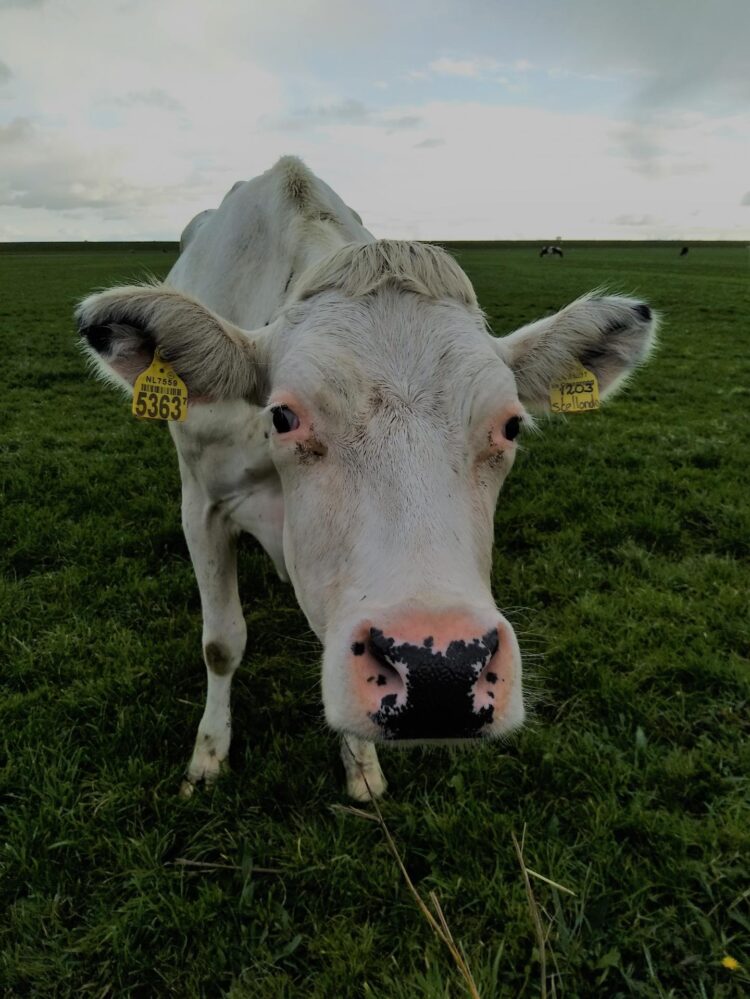
Credit: University of Groningen
Combining natural salt marsh habitats with conventional dikes may provide a more sustainable and cost-effective alternative for fully engineered flood protection. Researchers of the University of Groningen (UG) and the Royal Netherlands Institute for Sea Research (NIOZ) studied how salt marsh nature management can be optimized for coastal defence purposes. They found that grazing by both cattle and small herbivores such as geese and hare and artificial mowing can reduce salt marsh erosion, therefore contributing to nature-based coastal defence.
People around the world live in coastal areas that are prone to flooding. Dikes provide traditional flood protection for coastal defence purposes. In addition, salt marshes bordering these traditional barriers may strongly contribute to coastal protection by reducing wave forces on dikes.
Cost-effective
Hence, combining natural salt marsh habitats with conventional dikes may provide a more sustainable and cost-effective alternative for fully engineered flood protection. However, to safeguard this nature-based coastal defence, long-term salt marsh width and stability needs to be assured.
Researchers of the UG and NIOZ, therefore, studied how salt marsh nature management can be optimized for coastal defence purposes. They found that grazing by both cattle and small herbivores such as geese and hare and artificial mowing can reduce salt marsh erosion, therefore contributing to nature-based coastal defence. The results of this study have been published in the Journal of Applied Ecology.
Soil erosion
For this study, 78 soil samples were collected at different sites on the salt marsh of Schiermonnikoog, a barrier island in the Dutch Wadden Sea. At these locations, long-term exclosures were present to exclude grazing by either cows or smaller herbivores such as hare and geese.
Samples from grazed areas were compared with samples from the exclosures and artificially mowed sites. Soil cores were transported to the lab and exposed to artificial waves in controlled tanks. Researchers then measured soil erosion for a total of 38 hours.
Erosion resistance
The main author of the paper, Beatriz Marin-Diaz, explains: ‘The sandiest cores eroded most heavily, whereas soils with more clay were more erosion resistant. Cow grazing enhanced this erosion resistance by compacting the soil by trampling. Surprisingly, small herbivores contributed to less erosion by changing the vegetation to plants with high root densities that bind the soil together.’ In addition, the researchers found that artificial mowing also contributed to erosion resistance by excluding burying animals from the soil that destabilize the sediment.
Coastal protection
Overall, grazing and artificial mowing can reduce the erosion of fine?grained soils, making salt marshes more resilient to erosion. However, soil compaction by cattle simultaneously lowers the elevation of a marsh. This may impair their ability to keep up with sea-level rise.
Hence, to effectively manage salt marshes for coastal protection, the study recommends moderate or rotational livestock grazing, avoiding high-intensity grazing in sediment?poor systems sensitive to sea?level rise as well as investigating measures to preserve small grazers. This way, salt marshes can be managed effectively to enhance their coastal protection function.
###
Reference: Beatriz Marin-Diaz, Laura L. Govers, Daphne van der Wal, Han Olff and Tjeerd J. Bouma: How grazing management can maximize erosion resistance of salt marshes. Journal of Applied Ecology, first online 20 April 2021.
Media Contact
Rene Fransen
[email protected]
Original Source
https:/
Related Journal Article
http://dx.





